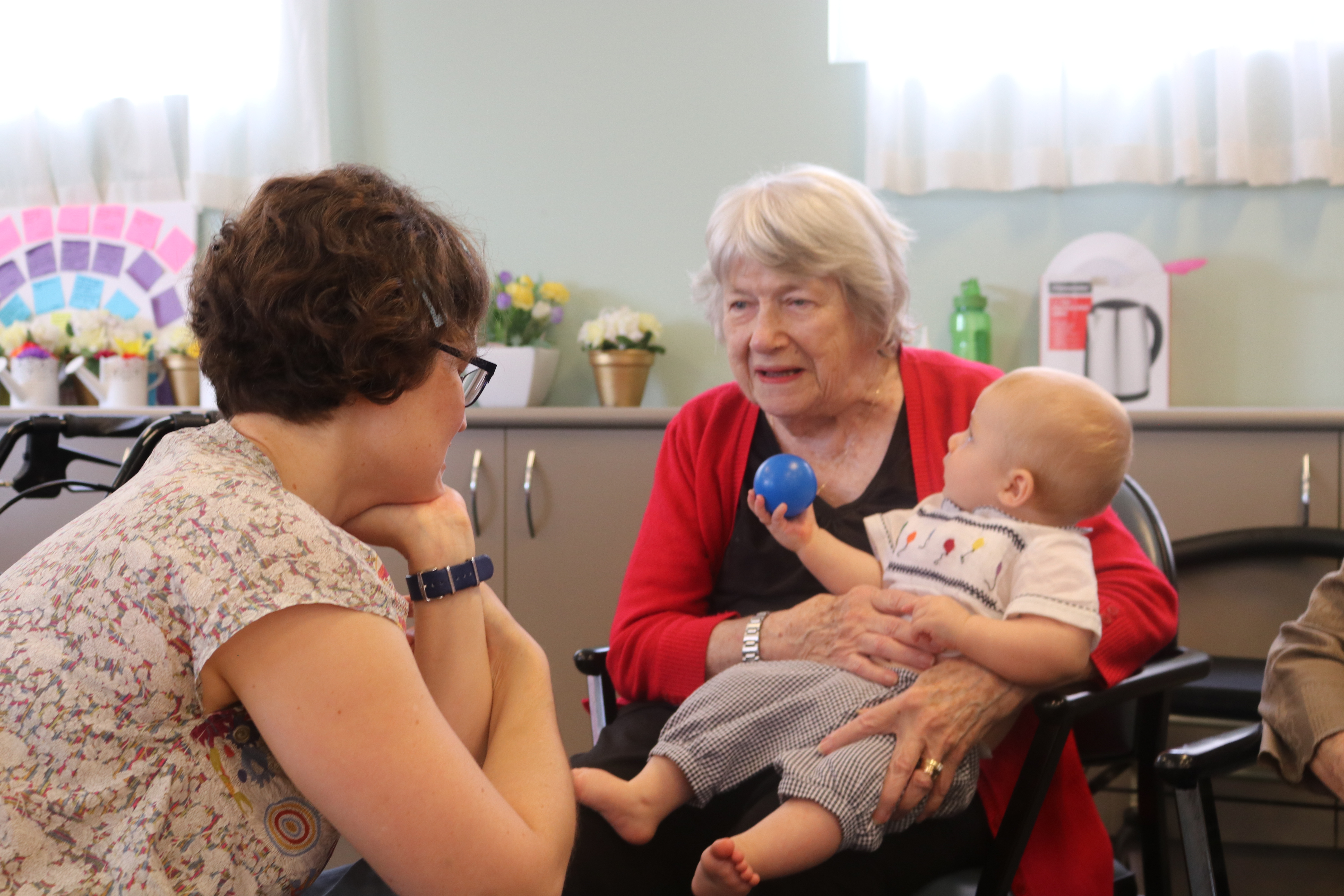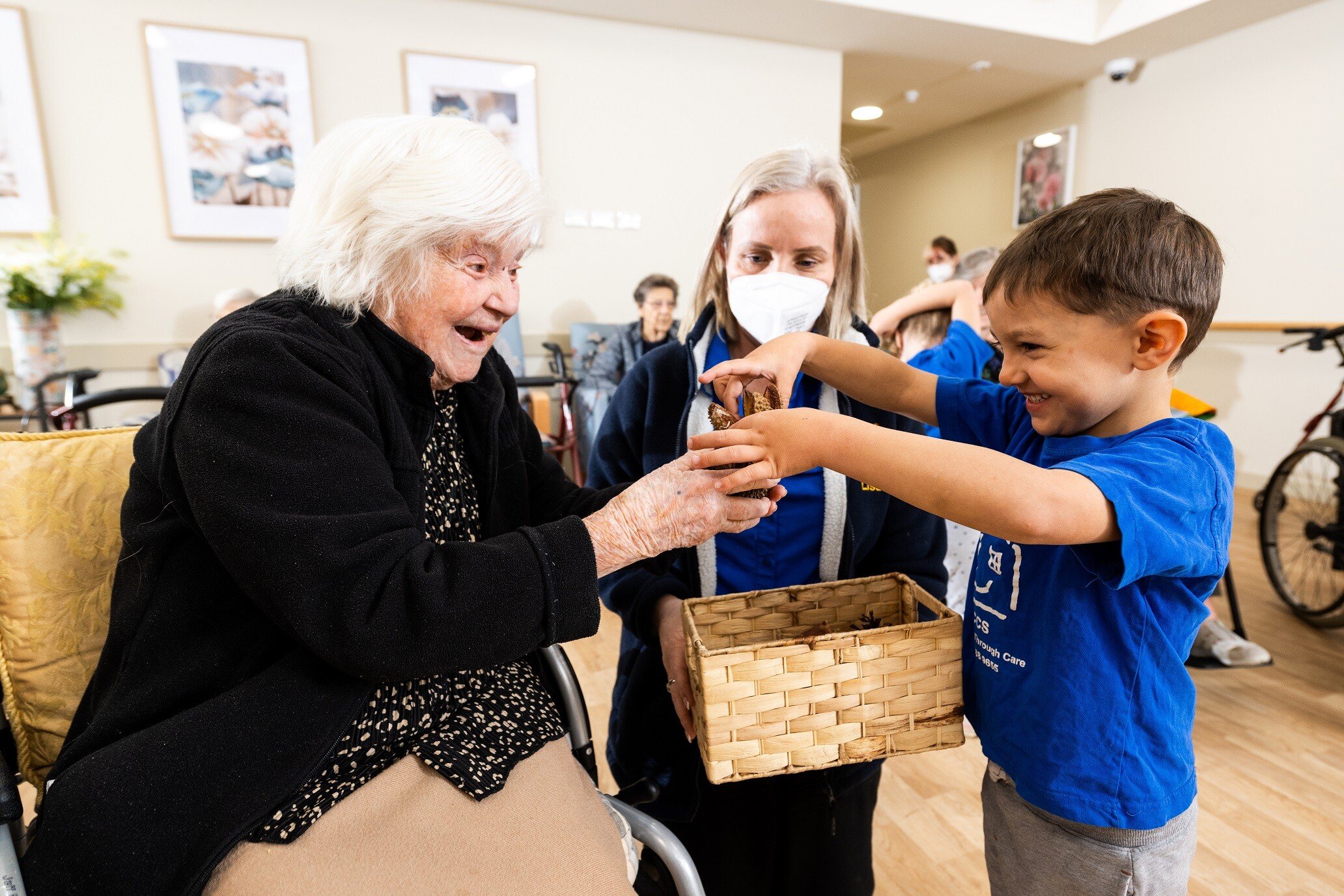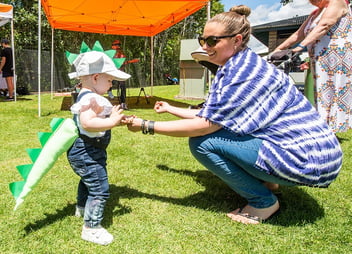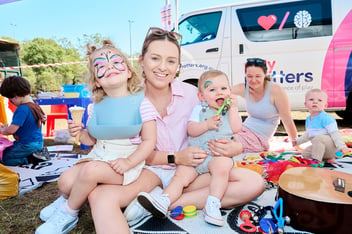
We Were Reaching Mothers —Interview with Gayle Spranklin
Blog > We Were Reaching Mothers —Interview with Gayle Spranklin
We Were Reaching Mothers —Interview with Gayle Spranklin
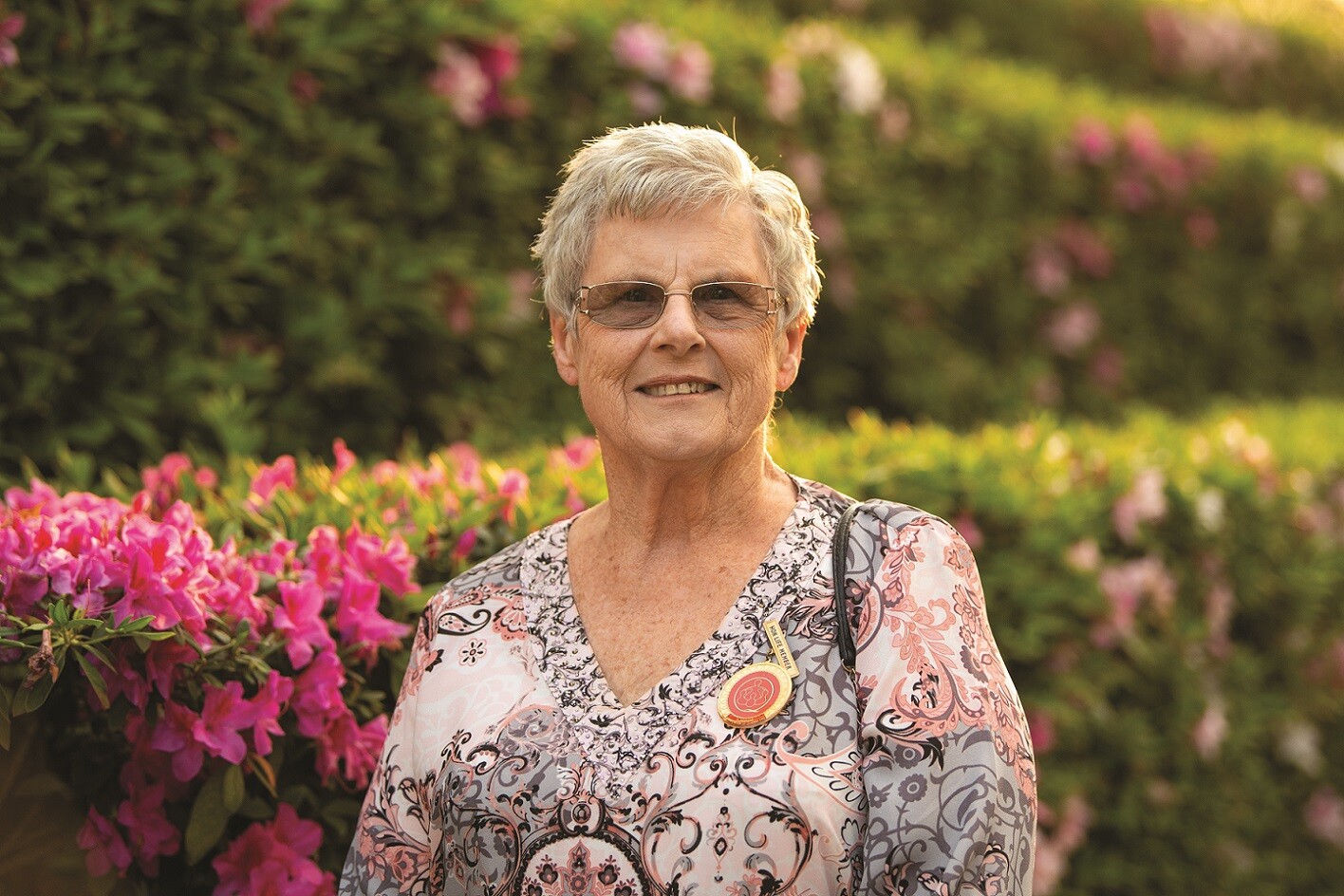
Gayle Spranklin has a long association with Play Matters Australia. In 1974 when her eldest daughter was 11-months old and in need of interaction with others, the young mother read an article in a local newspaper about playgroups. There was a phone number for enquiries. Making that call to Jill Nicoll changed Gayle’s life.
The first playgroup Gayle and her daughter attended was at the Holland Park Hall, and with five more children to add to her family, it was the first of many playgroup days to come. Gayle was a member of the State Committee for six years, Vice President for two non-consecutive years and appointed President for two years in 1985. The Association was a major part of Gayle’s life for 13 years and beyond - Gayle’s late husband Pat acted as the Association’s honorary solicitor for some 30 years. Gayle fondly reflects that her belief in the value of playgroups was one shared with her husband.
"Pat believed in it as well, it was a much-needed organisation for children and families. We were starting to structure an organisation; it was evident that we needed legal advice and Pat just put up his hand ... We had to be more than, for the terminology, ‘a mother’s group’ - we had to become a recognised organisation to get the funding, which meant we needed a Constitution. Pat drew up the Constitution which needed approval by the members. At one AGM he presented it, it took hours. The following year, we couldn’t get people to come. We sent out notices that there would be no Constitution to read this year, you can come … Pat was hands on as well. We put a float in the Warana Parade and he was very involved in getting the float ready - we spent weekends doing it."
It truly was a family affair and Gayle loved every minute. The benefit of play and social interaction that playgroup provided for her children was a major factor in motivating Gayle to spend so many years as a volunteer.
"My children remember having big trestle tables and we all walked around the table collating documents and books, we ran them off on the Gestetner machine. But that was a really good bonding time … I was in a home playgroup and when it was my turn to host playgroup the older children would ask me to leave it out until they got home from school."
Today, Gayle reflects that the fundamental principle of connecting children, parents and community remains at the heart of playgroup experiences.
"I have been to playgroup with my grandchildren. I thought, wow, after all these years the basics are still there - mothers needing to get together, letting their children play and interact with other children … I sat back and thought, ‘This is fantastic’."
Seeing the benefits of playgroup for not only the children, but also for the mothers, became a source of great satisfaction and pride during her time with the Association. Gayle was making a difference in the lives of others.
"The mothers also needed that interaction. There was very little for mothers, all we had was the baby clinics that told us what we should be doing, or what we shouldn’t be doing, asking why ‘isn’t your child meeting this milestone?’ I remember one mum who was distressed because her child wasn’t sitting up when the baby clinic nurse said your child should be. We told her not to worry about it, our children hadn’t either. It was an important support group for mothers.
"I was talking to a mum in Brisbane who had no family, no car and didn’t have a child at school. She said she had never felt so isolated in her whole life … I felt very proud of the fact that playgroup was able to help that mother. It is all of those little things that were just so significant and wonderful.
"I very much believed in playgroup. It was a very necessary organisation for mothers at that time. The biggest thing for me was that I knew we were reaching mothers. I knew what it was like with one child at home on my own. Every time a mother came to me and said, ‘I’m so thankful I’ve got playgroup’, it made everything we did worthwhile."
Yet, creating the foundation for the success of the PAQ wasn’t without its challenges. Even with limited funding becoming available in 1975, a significant load was shouldered by volunteers – there was promotion and communication, tracking and reaching out to the many community playgroups springing up in the grassroots movement, running playgroups and the office, providing advice, the legalities of the Constitution and of home groups needing the protection of insurance.
"There was a lot of promotion. We just wanted to get playgroup out there to as many people as we could … We did a state conference for our Zone Coordinators in Brisbane, which was huge. It was absolutely wonderful to think we had become an organisation big enough that we could bring all of our coordinators into Brisbane, listen to them and hear what they were doing out there in Queensland."
In the years preceding and during Gayle’s presidency, there was also concern regarding the informal group of representatives from the states and territories which regularly gathered at conferences in capital cities to share ideas – the group which later became the Playgroup Council of Australia.
"I was very much aware [at a 1984 conference] that we could lose our identity … I didn’t want Queensland to be engulfed in something that we weren’t going to be able to run ourselves … Victoria didn’t understand our scope of supporting all of Queensland. They had a small state and when it came to funding, they felt that having people travelling 30 or 40 kilometres was in the country. We were saying we might have to travel 200! Our state needed to be run differently to how Victoria, in particular, was running their state … there was no formation of the national body at that meeting."
Despite the challenges and with continued belief and commitment, Gayle’s experiences with playgroup ultimately changed her life. Initially wanting to join the committee but lacking confidence, Gayle needed to be persuaded by other members. From then, until her youngest child went to school in 1987, she gathered new skills, knowledge and lifelong friends, developed a broader perception of families and parenting, and nurtured an enduring sense of self-belief.
While a modified NSW Playgroup Association Constitution was reported at the 1974 AGM as being
accepted by the Department of Justice, in January 1975, the Association was notified that redrafting was required.
Gayle’s husband took on the role of honorary solicitor and set about the process, presenting the revised Constitution at the AGM in 1976.
The Association first received administration funding from the Australian Government with a grant of $5000 in 1975. Fundraising formed the bulk of revenue and included cake stalls, social evenings, minor raffles, peanut and biscuit drives, the sale of the magazine and fashion parades to the selling of merchandise such as t-shirts and art and craft products for playgroups and individuals.
In 1978, funding efforts expanded with the first Art Union fundraiser netting approximately $500 profit. By 1983, the profit from the Art Union was reported as $15,500. In the same year, Australian Government grants totalled $7,500 and State grants $1000.
"I remember leaving the office for the last time, driving home across the freeway and thinking … ‘What have I done? What am I going to do?’ It had been such a big part of my life for so long and it was just gone. Then I started to work with Pat in his office.
"I loved every minute of being on the State Committee. It gave me a huge amount of confidence as a person and my ability to do things … I felt that I could tackle anything after that, talk to anybody and do anything I wanted to. Playgroup gave me tremendous joy.
"We had to be more than, for the terminology ‘a mother’s group’, we had
to become a recognised organisation to get the funding, which meant we needed a Constitution."
Find a play experience near you:
Subscribe to our newsletter >
Related content:
Advertisement:
.jpg)
